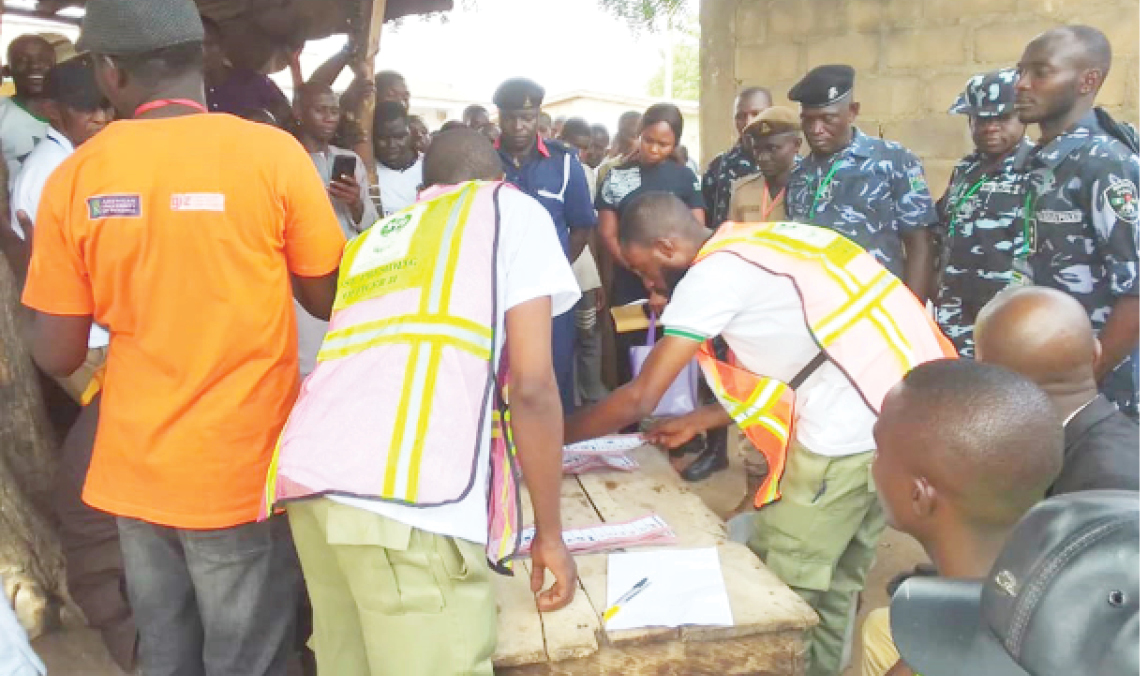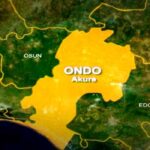On Saturday, the 11th November, 2023, three off-cycle governorship elections were conducted by the Independent National Electoral Commission (INEC) in Kogi, Imo and Bayelsa states.
They were the first set of major elections to be conducted by the commission after the 2023 General Elections. They were conducted in states noted and infamous for their pedigree in electoral violence. In fact, the elections in these states were presaged by negative mobilization and violence. In two senatorial zones of Imo State, for instance, villagers fled after their houses had been razed.
These three off-season governorship elections were the first set of significant elections to be conducted under the watch of President Bola Ahmed Tinubu. Recall that the refrain of former President Muhammadu Buhari was to bequeath a legacy of credible elections.
The elections came at a time when many Nigerians distrusted the election management body (EMB) due to its non-compliance with its guidelines and regulations and the sundry shortcomings and irregularities that visited the 2023 general elections. It was thought that the off-cycle elections were an auspicious opportunity for INEC to begin to rebuild trust. Shortly before the conduct of the 2023 general elections, INEC made waves by conducting exquisite off-cycle governorship elections in Ekiti and Osun states.
Restructure Nigeria, Afenifere tells Tinubu
Parental influence on a child’s academic success
By all accounts, the Bimodal Voter Accreditation System (BVAS) and the INEC Result Viewing Portal (IReV) performed remarkably well across the three states. There was also a significant improvement in logistics and early opening of polls in the three states compared with the experience in the general elections in which even in the FCT, a number of polling units in Apo and Gwarimpa Districts, did not open until 12pm.
Thanks to the massive deployment of security personnel, election day violence was minimal across the three states. Collation centres were not attacked with the abandon and savagery that obtained in the 2023 general elections. And even though there were widespread reports of vote buying, the anti-corruption agencies upped their game by making a number of arrests.
If there was considerable improvement in the conduct of these elections, polling unit results were reported to have been uploaded on the IReV in many PUs across Imo State where elections did not take place. Reports YIAGA-AFRICA: “These cases were prevalent in nine polling units in Orsu LGA, eight polling units in Okigwe, eight polling units in Oru East, seven polling units in Orlu LGA, one polling unit each in Ideato North, Ikeduru, Oru West and Owerri West LGAs.”
The Executive Director of the Emma Ezeazu Centre for Good Governance, Mma Odi, alleged in an interview with Africa Independent Television (AIT) that: “…INEC actually resurrected dead people to vote for where they didn’t even deploy materials and personnel, they actually recorded votes there. In Okigwe Zone, there are polling units, nobody even came to vote and INEC actually uploaded results from those polling units.”
Low voter turnout defined the elections, particularly in Bayelsa and Imo states. This is understandable given the heightened insecurity that preceded the elections. Even in Kogi where turnout was impressive, it was on account of the identity politics that drove the campaigns and contestation. Each of Kogi’s three senatorial zones paraded a formidable candidate. And each of the major ethnic groups in the three senatorial districts appeared to vote in solidarity with its preferred candidate.
In at least Imo and Bayelsa states, the governors sought a second term. Apart from the incumbency factor which worked for them, they were thought to have found succour and strength in expansive war chests. Even though the winner of the election in Kogi was new and seeking a first term, he was widely speculated to be a protégé and surrogate of the outgoing governor, Yahaya Bello. The Governor-elect is also thought to be the spearhead of an agenda meant to perpetuate a senatorial zone in Kogi Government House, popularly referred to as Lugard House.
In spite of the fact that the contest in Kogi, along ethnic lines, spurred an impressive voter turnout, the comparatively huge turnout in the governor’s senatorial zone (comprising five LGAs) is curious. In a contest hallmarked by identity politics, recourse will certainly be found in whipping up primordial sentiments and promoting ethnic solidarity. All the same, the comparatively huge votes recorded in the governor’s zone is intriguing and calls for further interrogation and scrutiny by the commission, the media and civil society.
The commission’s timeous response to the filling of result sheets in lieu of the conduct of elections in Ogori Magongo LGA deserves praise for its proactivity and promptness. However, to serve as a deterrent to others, there should be a thorough investigation and subsequent apprehension and trial of the perpetrators of this crime. This should be done immediately and in the full glare of all stakeholders. By the same token, the commission must investigate the upload of results onto the IReV from PUs where elections did not hold in Imo State. The outcome of such an investigation should be placed in the public domain in concert with the commission’s core values of integrity and transparency.
Subsequently and where the impartiality of a Resident Electoral Commissioner (REC) is called to question in a cogent and compelling manner, such a REC or official should either recuse himself/herself or be transferred out by the commission.
For our elections to be credible, the political class must reciprocate the commission’s efforts. It must play by the rules as enunciated by the Constitution, the Electoral Act and the Commission’s guidelines and regulations. Campaigns must be issue-based. They must be conducted with civility and utmost decorum. Hate speech and violence should be eschewed. There should be no resort to vote buying as it undermines the integrity of our elections. Voters should be circumspect and judicious. They should vote only for candidates that are savvy, capable and can deliver good governance.
Once all stakeholders get their acts together and do what is right by our electoral laws, then we shall be on the path of redemption. Hopefully, that trajectory should put our democracy on a solid keel.
Nick Dazang is a former Director at the Independent National Electoral Commission (INEC)

 Join Daily Trust WhatsApp Community For Quick Access To News and Happenings Around You.
Join Daily Trust WhatsApp Community For Quick Access To News and Happenings Around You.

